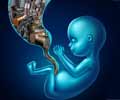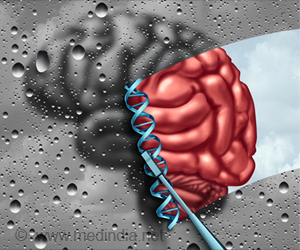Elevated levels of certain molecules at birth are associated with risk for autism spectrum disorder. This finding could lay the groundwork for a screening test.

‘A period of vulnerability during pregnancy can interfere with central nervous system development and cause autism in children.’





In earlier studies, the researchers linked ASD risk to prenatal exposure to maternal fever, and influenza infection, and herpesvirus type 2 infection—two of many potential triggers for maternal inflammation and ASD.The new study aligns with evidence that the risk of ASD is increased by fetal exposure to inflammation. In the study, researchers analyzed the presence of 60 molecular markers of the immune response, including cytokines and growth factors.
Blood samples were collected during pregnancy (maternal mid-gestational blood sample) and at birth (cord blood) from 957 children, roughly half of whom were later diagnosed with ASD.
The study linked ASD risk to groupings of inflammation-related molecules, with different groupings seen in boys versus girls.
Among the most predictive molecules were interleukins like IL1RA and IL4. Four molecules thought to be involved in fetal brain development were also linked to ASD risk in both sexes: TNFα, Serpin E1, VCAM1, and IL1β.
Advertisement
They also found immune signatures in mid-pregnancy blood samples from mothers and umbilical cord blood from children later diagnosed with autism that correlate with responses to infection, and molecules important for the development of the brain and its blood supply.
Advertisement
Source-Medindia













